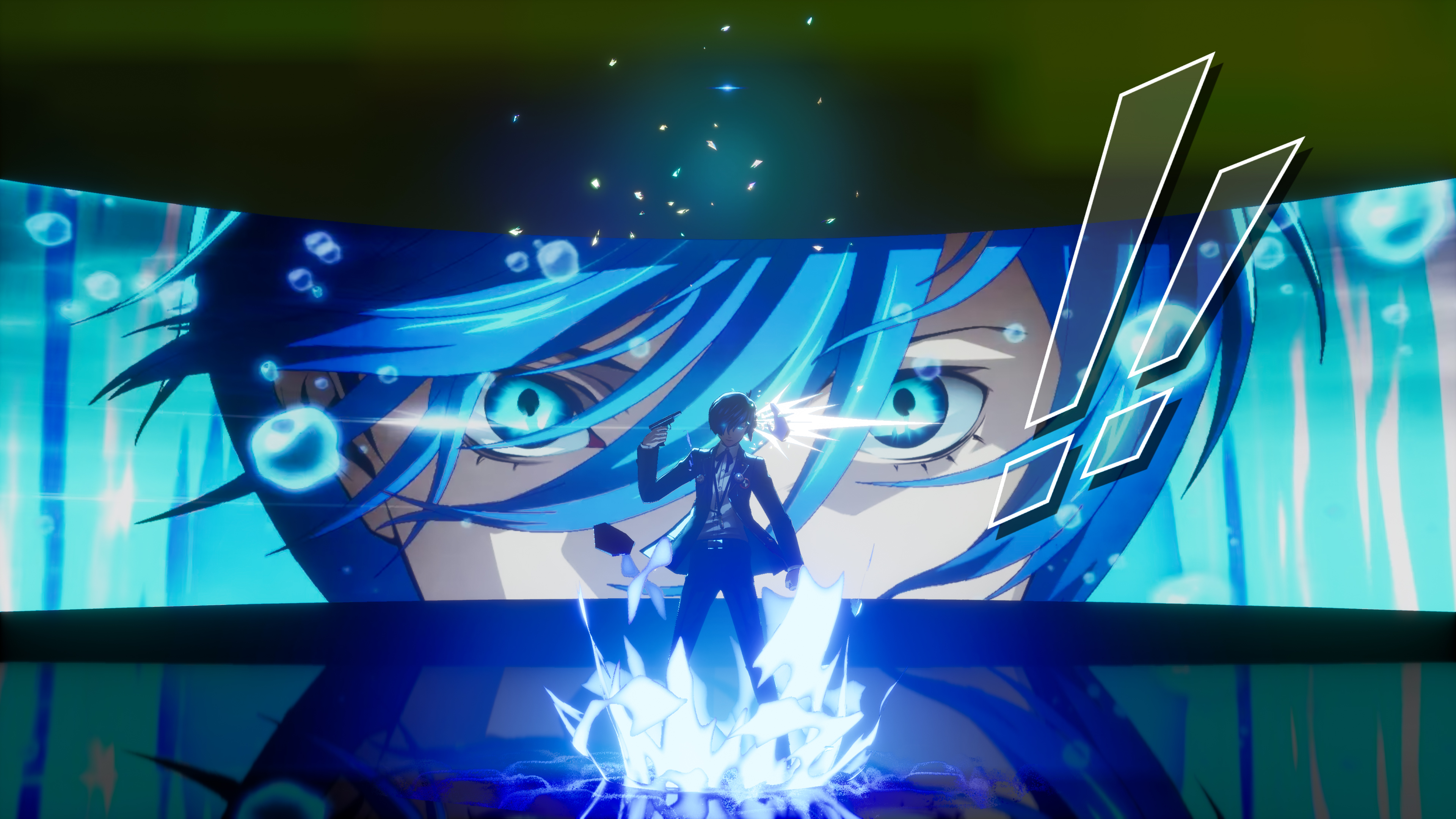Our Verdict
Persona 3 Reload is a highly-polished remake of the 2006 classic. A few elements don't age well.
PC Gamer's got your back
What is it? A remake of the classic 2006 turn-based RPG.
Release date February 1, 2024
Expect to pay $70/£60
Developer Atlus
Publisher Sega
Reviewed on Windows 10 Pro, Intel i9-10920X, 128 GB RAM, NVIDIA GeForce RTX 3080
Steam Deck Verified
Link Official site
Persona 3 Reload isn't just a hi-res tune-up of the 2006 turn-based classic Shin Megami Tensei: Persona 3. It's a true remake, with nearly every aspect of the game changing in subtle or major ways. What feels like thousands of added voiceover lines, impressive new persona animations, sharp graphic design and some nifty quality of life features give Persona 3's intricate story a high 2024 shine.
Sixteen years ago, Persona 3 was a landmark RPG: The way it combined a high school life sim with a dungeon crawler including both grotesque Pokémon and roguelike elements gave it unparalleled depth. Which also means Persona 3 Reload is long.
Really really long. Enormously long. You're playing for a full year, one day at a time. Each day has multiple interactions and decision points. It typically takes more than 130 hours to meander your way through, and I've enjoyed every hour I've spent in it.
School days
You play as a transfer student, new to a town where people are afflicted by an "apathy sickness" that causes some to take their own lives. The culprit can be found in the Dark Hour, the secret time in the middle of the night when normal folks temporarily morph into coffins or get their souls melted. You and your friends, however, remain human during the Dark Hour and fight the shadows with the help of personas: alter-ego demigods, demons and other creatures plucked from mythology you can summon to fight on your behalf.
There are dozens of ways to achieve the same goals, and each day is different.
In the daytime you work on leveling up your attributes—studying raises your Academics score, for example, and singing karaoke alone boosts your Courage. Each activity lasts just long enough to reward your decisions; I never feel like I'm grinding pointless minigames. Going out with friends or completing quests for them strengthens your Social Links, which in turn strengthen associated persona types. There are dozens of ways to achieve the same goals, and each day is different.
Return to an activity, and you'll find it different than when you left it, and decisions matter. If I choose to stay awake in class (to earn Academics points) instead of sleeping (to earn Courage), the five pop-quiz history questions I answer will show up on the midterm exam, rewarding my attentiveness.
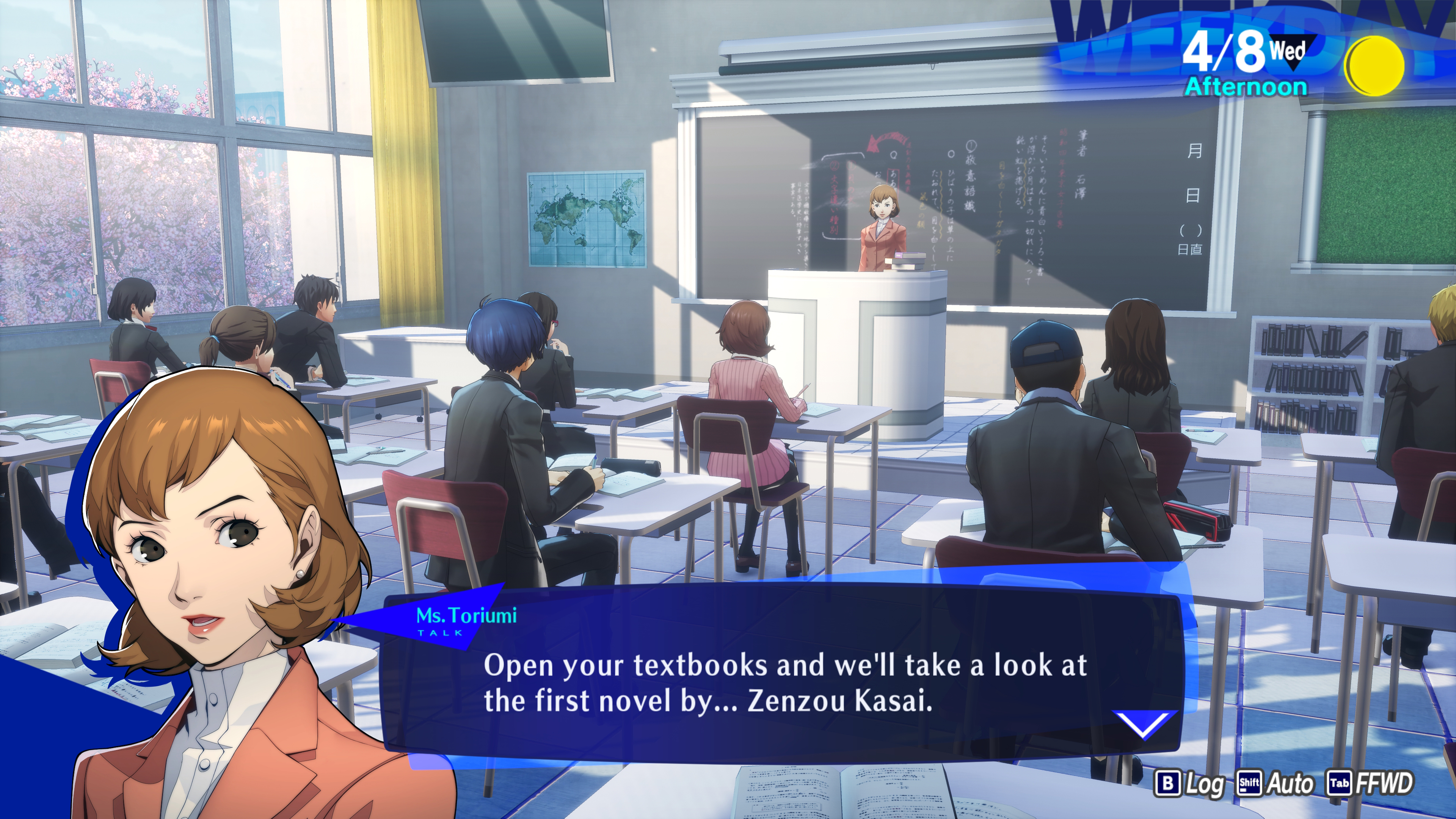
It gives me real choices with real consequences, and I love it.
Most of the life sim half of the game is dedicated to Social Links, the bonds you form with other characters. Social Links made Persona 3 Reload’s world feel real to me. There are more than 20 of them, linked to various arcana of personas that you can acquire. But that dry description doesn’t capture the delight of watching these relationships with other people slowly evolve in the game. Some are available right from the start; others require investing a huge amount of time just to begin.
Social Links almost all involve meaningful character development. You might have a friendly bowl of ramen with your classmate Kenji, a very early Social Link that strengthens Magician-arcana personas. But before long you’re caught up in his cringe-inducing quest to ask a teacher out. Every time you meet up, something new has happened—she’s invited him over! But wait, there was a bride’s magazine on her coffee table. But now she’s being transferred—what should he do? He’ll ask you for advice, or pause for you to respond to what he has to say, with your responses affecting the strength of the link.
You can’t pursue all of your Social Links at once, because there’s just too much to do. Some days, when my phone filled with messages from all the links who were available inviting me to different places to do different things, were intensely frustrating because I caredd about all of them. But the variety of their activities, and the slow and reasonably realistic nature of their dialog and dramas, made Social Links one of the best parts of the game, with the reward for seeing each one through more power for my personas in combat. It gives me real choices with real consequences, and I love it.
Nights in the tower
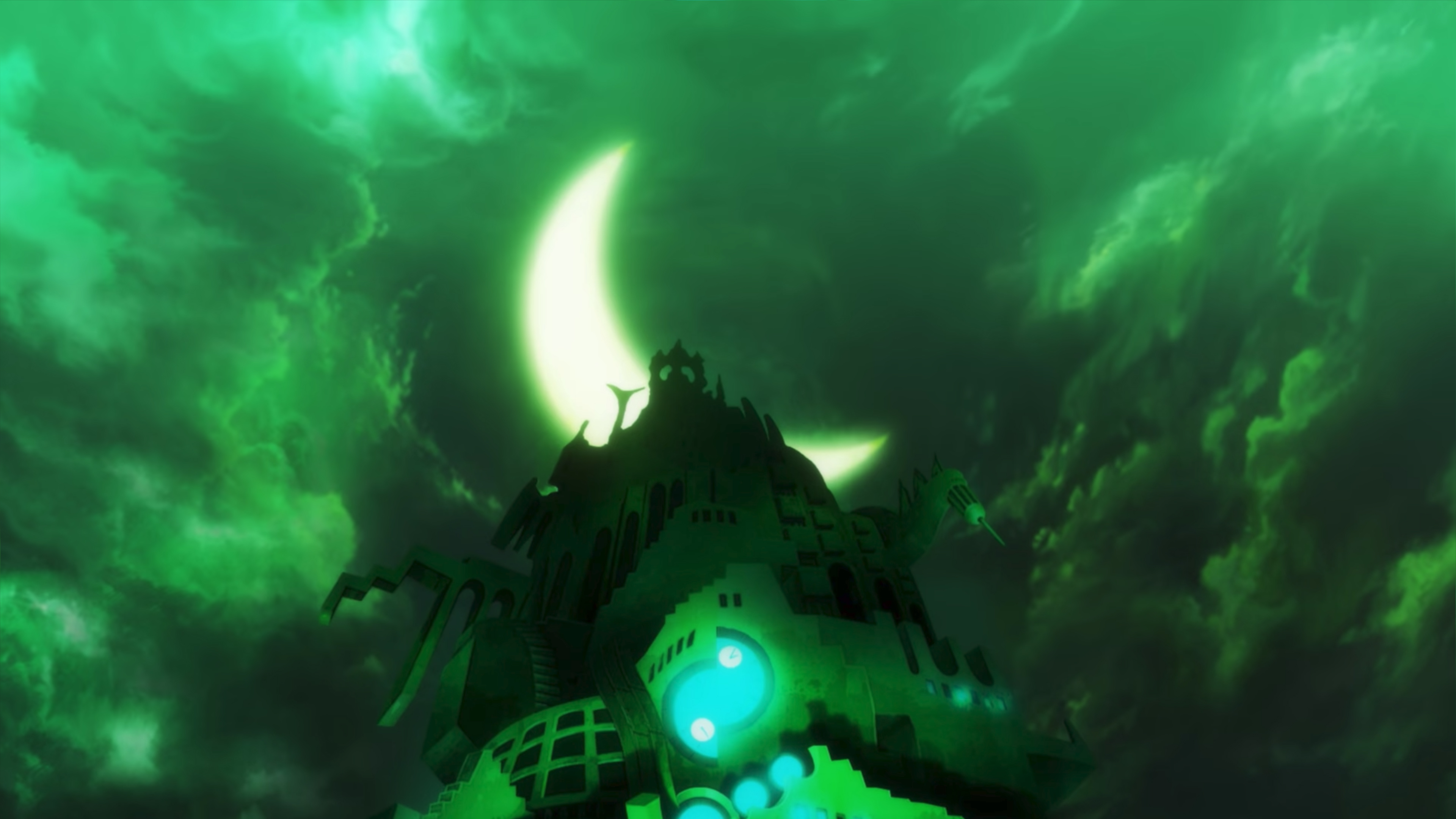
At night, the high school morphs into Tartarus, a giant tower of bad guys. School as a tower of evil to be conquered is practically a trope in anime and manga… Tartarus just makes it real, at the end of the (in-game) day.
The dungeon itself is in some ways the weakest part of Persona 3 Reload. While the enemy design has that funhouse-mirror feel unique to this series, Tartarus is repetitive: Climb a floor. Bash the new breakables and open the chests (including new locked ones that take Twilight Shards you collect in the daytime world.) Attack any shadows you see. Repeat. The art design changes, but the adventures are the same. Fortunately, the depth of the persona system helps to keep things feeling fresh in combat.
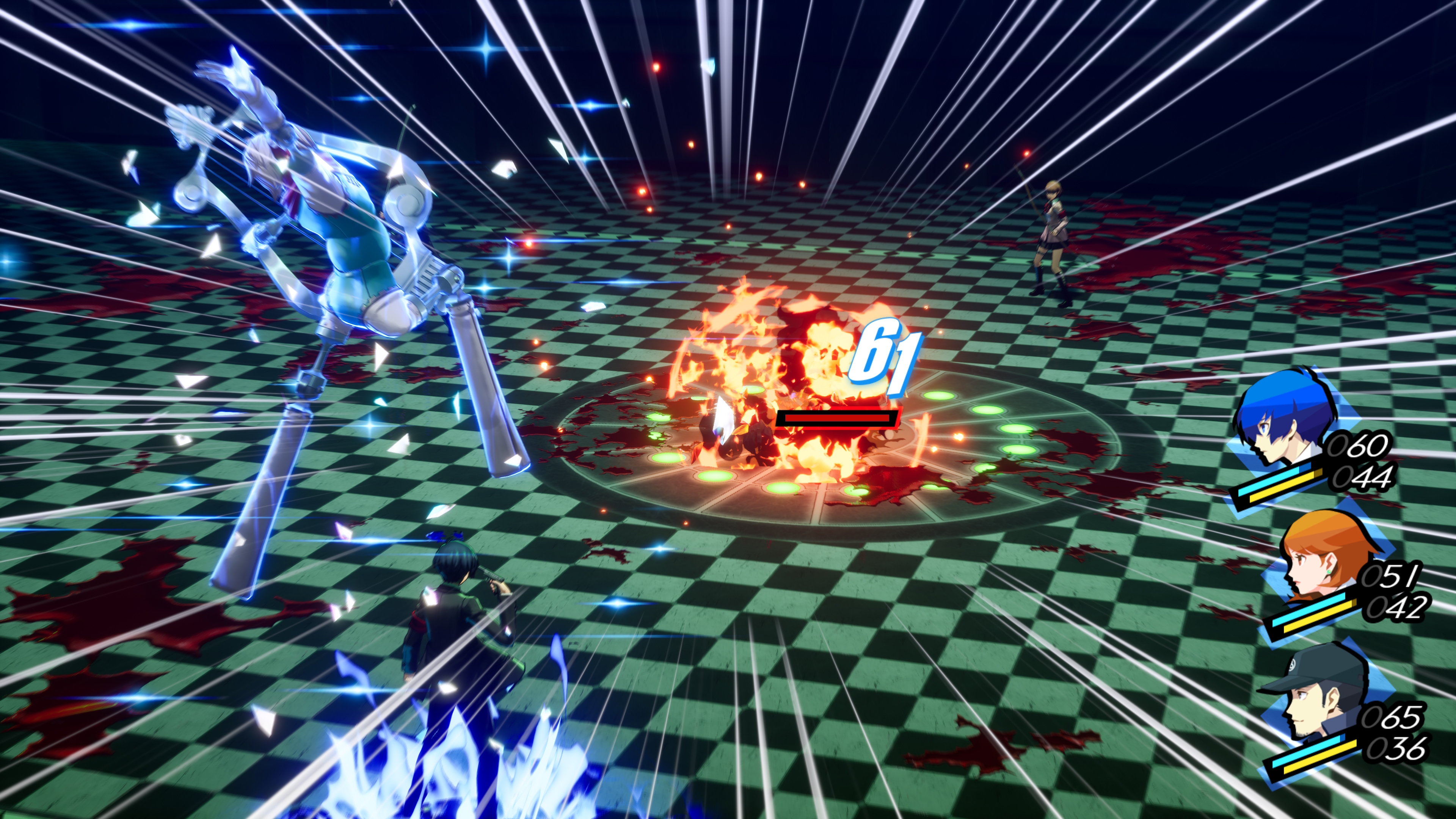
Your character has the unique ability to summon more than one persona and even fuse them to create new ones, like magician-cat-person Nekomata or elven knight Tam Lin. The combinations are wild, and if you don’t cheat by reading online guides, unpredictable. It's great fun turning persona cards that look like monsters or priestesses into a Swiss maid, or a fractured combination of lion and eagle and scorpion.
(A warning: Personas are summoned when a teen hero puts what looks like a pistol to their head and fires. Suicide is a theme throughout, and this happens in every fight.)
It's a ridiculously involved game, but my frustration in playing through it was never how long it took—it was not being able to do everything that I wanted to do, every day. That's a good thing.
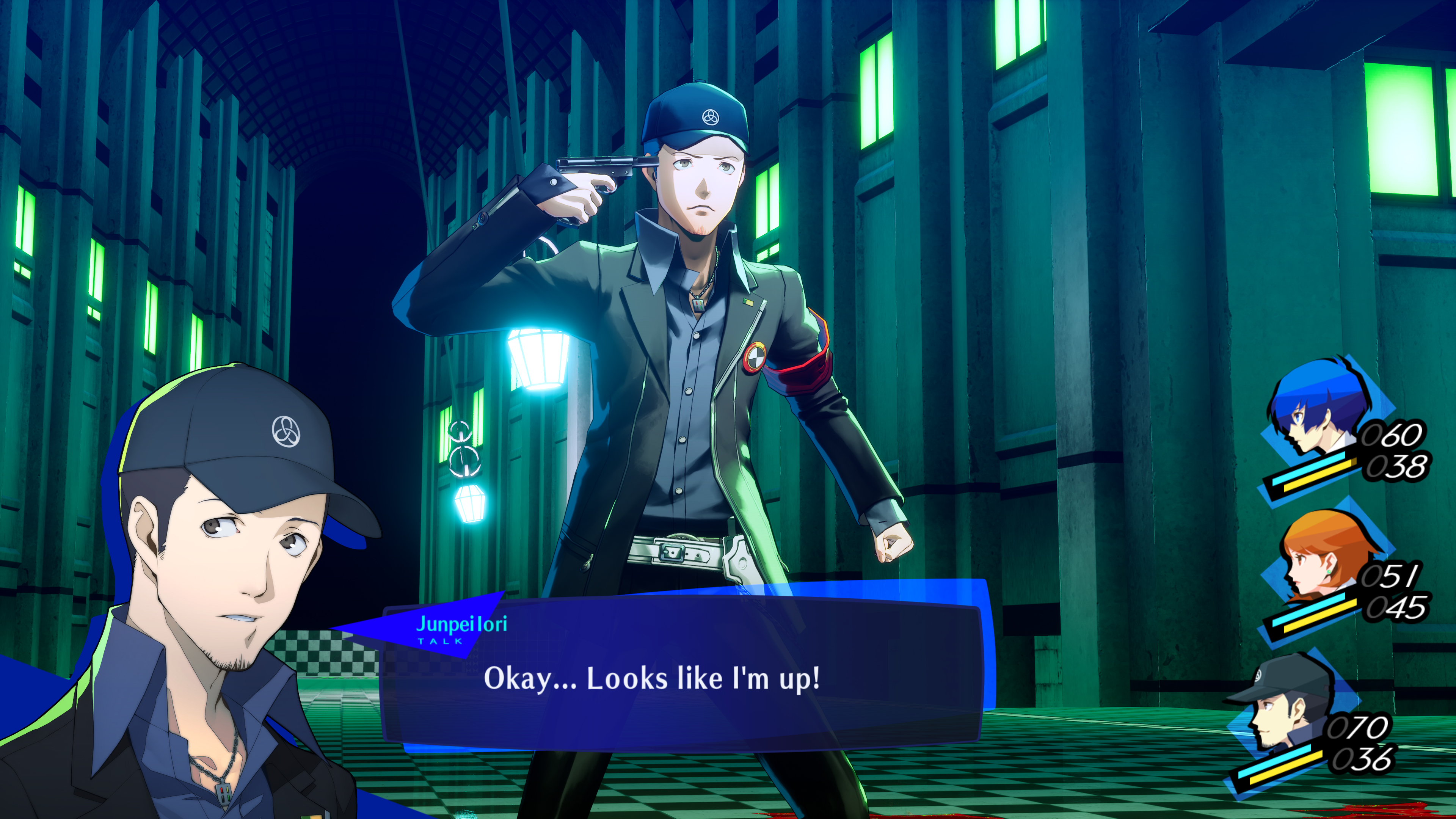
New look
Reload is fundamentally not the same game as last year's Persona 3 Portable PC: It's been completely rebuilt on the Unreal Engine, and it's gorgeous. The characters are 3D, fully present in social settings, but the lighting and shading remain painterly enough to maintain Persona's unique design style. At the strip mall monorail stop, you'll see shadows moving across escalator stairs. Outside the school, you'll talk with your friends while cherry blossoms fall and swirl all around you. Every social link interaction has voiceover lines now, some of them extensive, in addition to the main plot. The voice acting is generally excellent.
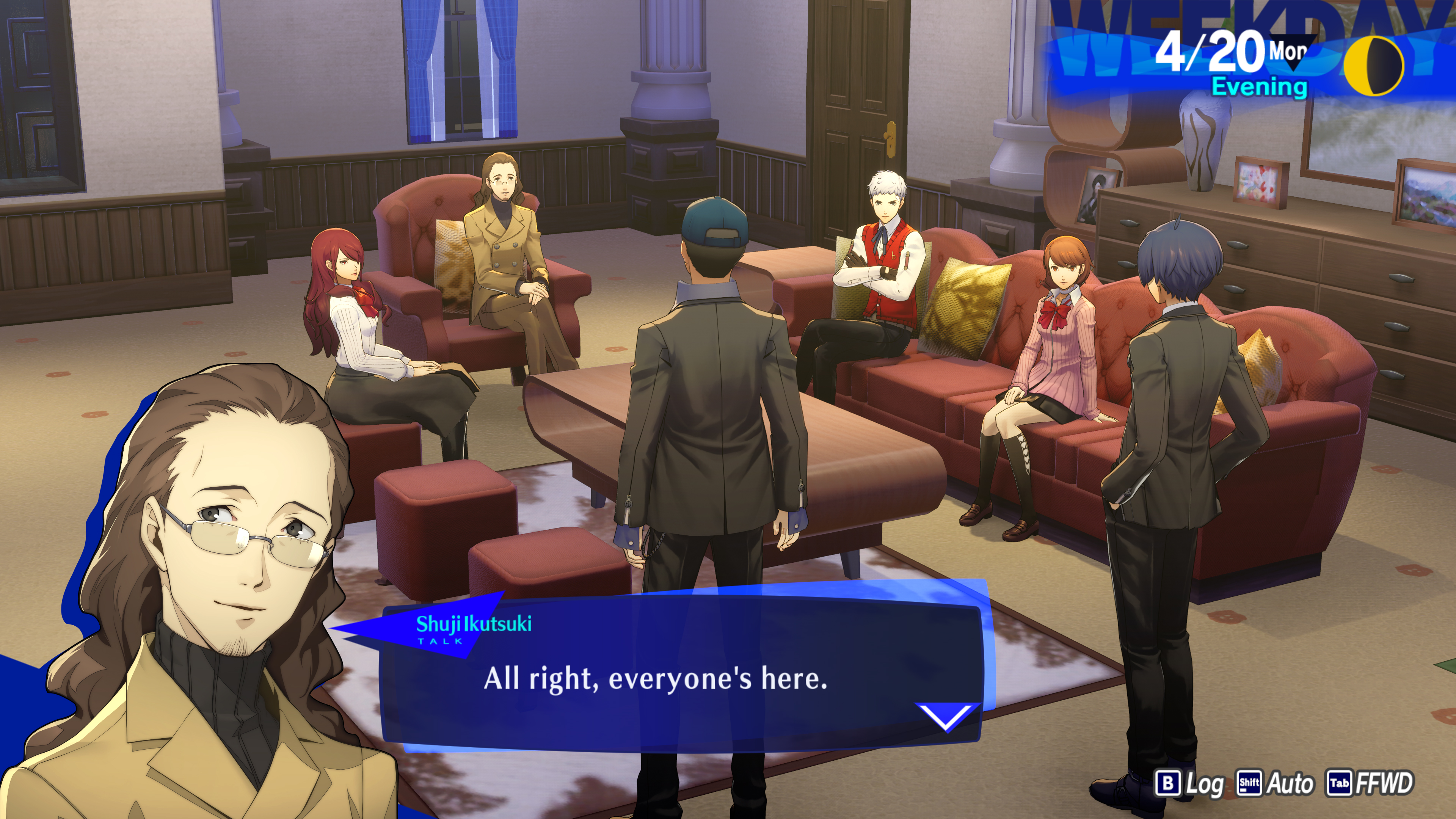
Goofy Junpei, who could easily be "that obnoxious JRPG guy," comes across as a surprisingly nuanced character, with insecurities and quirks, helped along by the skills of voice actor Zeno Robinson. If you don't want to listen to him, you can now use the Tab button functionality to toggle on super-speedy, automatic fast-forwarding through all interactions, but why would you when they're this fun?
In combat the new presentation gets even better. The artists have taken the sharp Persona look and built on it, creating multi-panel graphic screens that evoke manga and mixing them beautifully with brand-new active animations for persona and enemy shadow abilities. The way each persona emerges and fights—which changes from round to round, even when you're using the same abilities—is a dramatic, screen-filling reward for finding and fusing them. Whether it's a valkyrie on horseback, a winged knight, a succubus in hot pants, or any of the other 173 combinations, each persona has its own signature style.
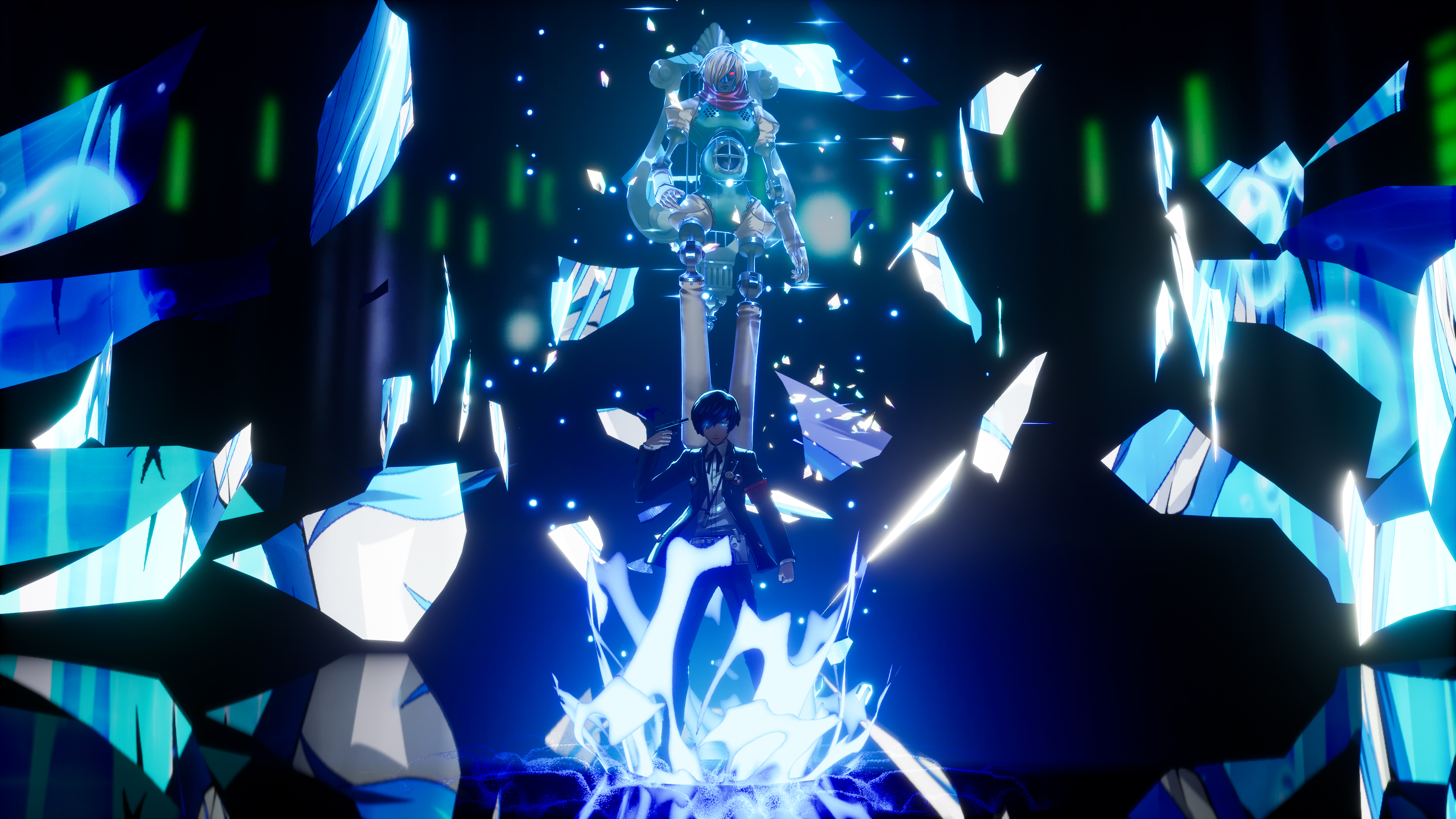
The basic interface for doing fusions is awkward, as you cycle through each of the personas you have and see what they might become in combination with other random persona types. Instead, I found myself using a separate special menu that allowed me to see everything I could make right that second, which was far easier to navigate. It even lets you see personas too powerful for your level, so you can see when you might want to hang onto something for a near-future fusion.
UI improvements come thanks to the remake's new game engine: running up to things in the world is a much easier and more active way to interact than nudging around a blue blob on screen like in Persona 3 Portable. 3 Reload flowed as smoothly as the Chairman's puns on my testing PC (specs below).
The camera feels sluggish with a mouse and keyboard, however, requiring far too much mouse movement to see behind you. That's annoying when you have to shift directions in a dungeon, or when you need to use the right (and only the right) Ctrl button to attack. Controller players got the better end of the deal here; the PlayStation 5 version of the game has gorgeous camera control.
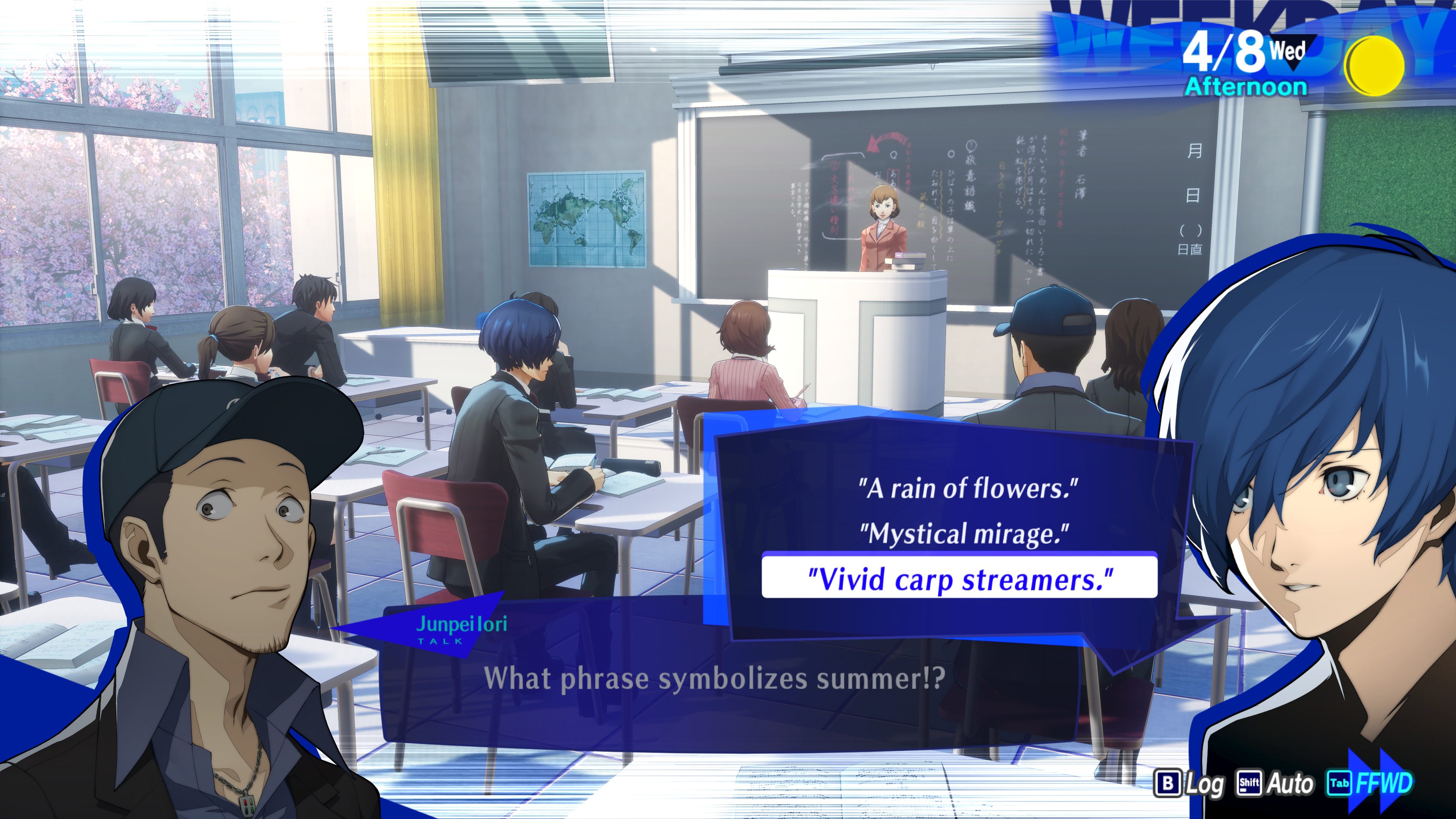
In combat, I really enjoyed the individual control of party members, particularly in combination with the One More mechanic. When you knock an enemy down (with, say, a persona attack that it is weak to) you earn a free turn, and can choose to pass that turn to someone else in the party. There's a super fun mental calculus in chaining a turn from a character that has a single-target strong electric attack to someone whose persona can then cast that type of move on the entire group of enemies, for example. Getting to play from one weakness to the next adds a strategic element that takes planning to make the most of.
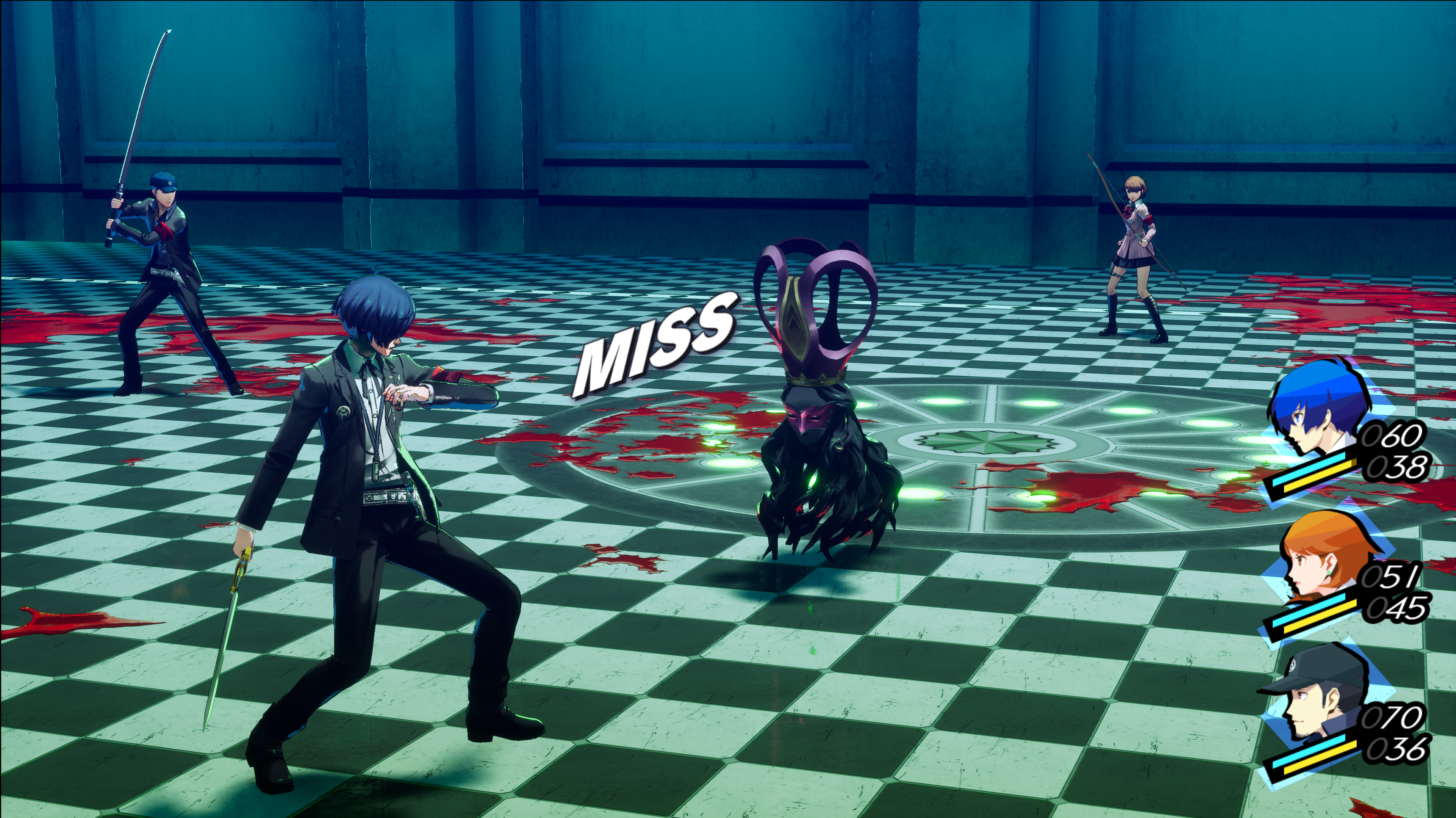
Much of the depth of Persona’s battle system is in how you set up your personas, including which you fuse, how good your Social Links are, and what skill cards you award them with. But the extra attack of One More, shifting moves to your party, and Theurgy (another new addition for Reload) allows you to do more than just rock-paper-scissors hammering of opponents’ weaknesses.
Theurgy is a splashy new mechanic that you get around level 20: Signature attacks by each of your party members. You fill a gauge by meeting certain conditions, which are different for each character, you can unleash a special move. Take Yukari, for example: When her persona heals a party member, it fills the gauge until you can unleash a giant, multi-step bow attack that she does in concert with her persona. Earning these feels incredibly satisfying, since the Theurgy moves are often overpowered and reward you with flashy animations. Think of a Mortal Kombat Fatality and you’ll have the idea. Not all are as rewarding as those iconic slaughter moves, but they’re uber strong and reasonably easy to trigger.
Modern values
Persona 3 Reload is fabulous, engrossing, and ridiculously deep.
Persona 3 Reload has made a few minor nods to contemporary sensibilities. A warning screen at the start of the game lets you know that you'll be seeing scenes of violence, bullying and self-harm. There is a minor in-passing question about why the evoker that is used to summon personas "has to look like a gun." (Uh, right. It's a gun.)
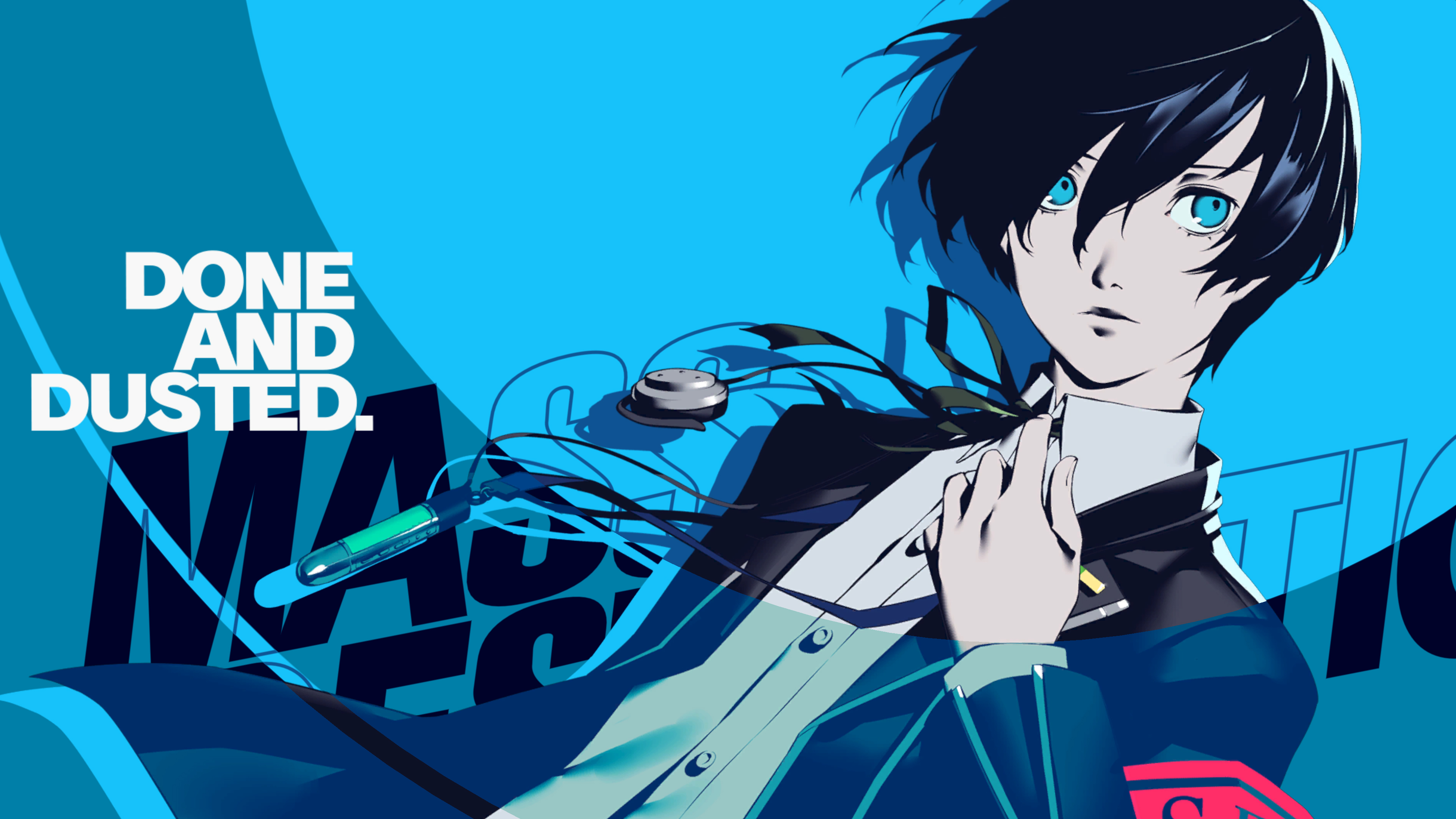
Very little else in the original game's story has changed, which isn't for the better in all cases. Athletic club manager Yuko (she manages whatever team you join) carries on about having to pick up after her male charges and comments that at least it keeps her from gaining weight, and women not on the combat team are frequently portrayed as doe-eyed man-chasers or caregivers. Sometimes even the core characters fall prey to sexist tropes.
My biggest single complaint with Persona 3 Reload is one major missing feature from Persona 3 Portable: It is no longer possible to choose to play through as a female lead character. That's a shame, not just because you can't play as a girl, but also because the option gave Portable some serious replayability.
But in a game this huge and this rewarding, I'll let it slide. Persona 3 Reload is fabulous, engrossing, and ridiculously deep. If you've never played a Persona, this is a great introduction to the series, and holds its own against the newer games. If you've played it before, you're going to be shocked at how very reloaded the experience feels.
Persona 3 Reload is a highly-polished remake of the 2006 classic. A few elements don't age well.
Heather Newman has reported on games for more than 25 years, with an internationally syndicated column and stories in dozens of magazines. In World of Warcraft, her Mythic Plus dungeon team was No. 1 in all-star points in North America for a number of weeks for slightly cheesy reasons. She scored one measly point against Jonathan “Fatal1ty” Wendel in Unreal Tournament and was, exceedingly briefly, top 50 world in Halo.
